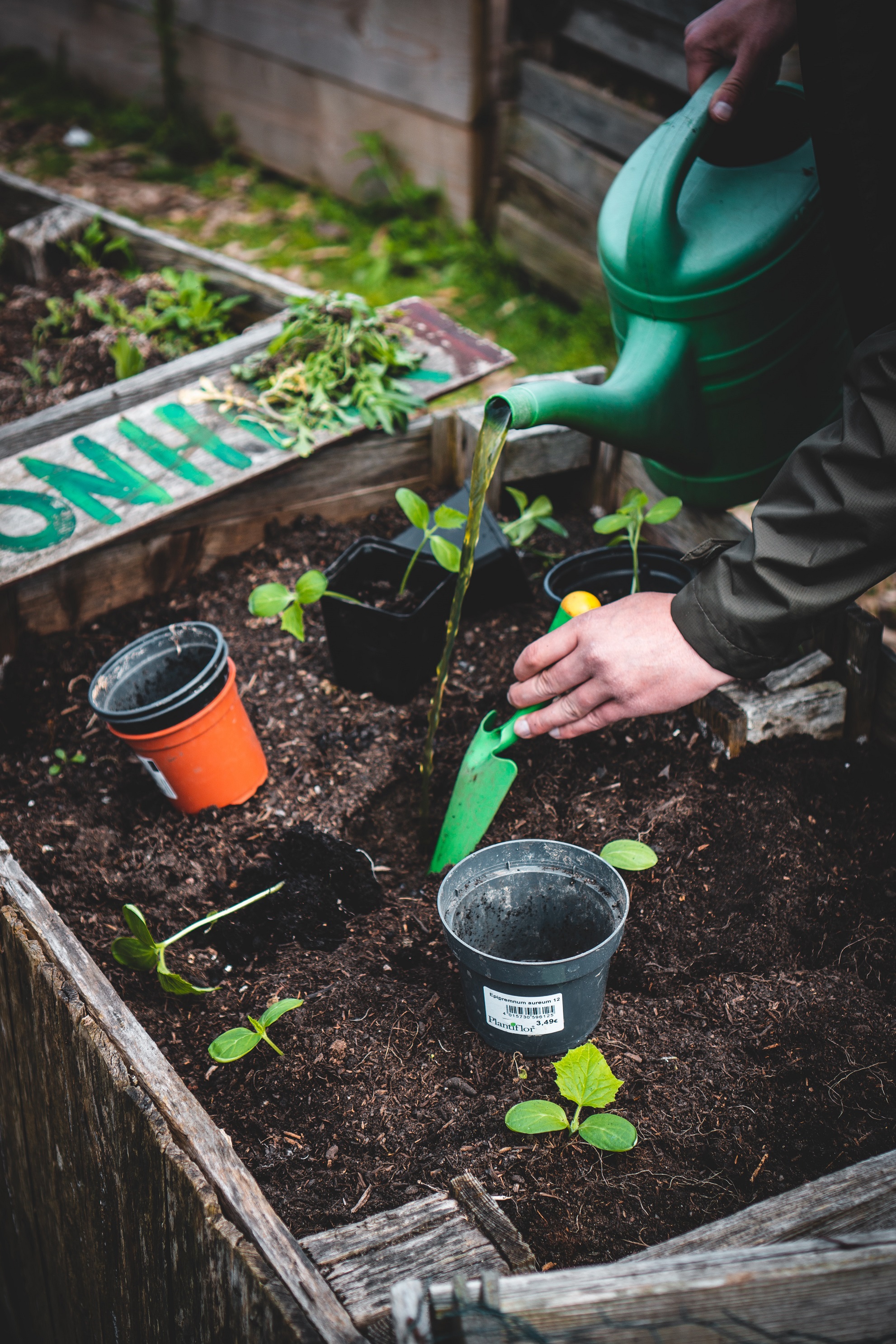Gardening Goals-BINGO!!!
“Before we ever put a pencil in a child’s hands, those hands should dig, climb, press, pull, squish, twist, and pinch in a wide array of environments and with a variety of materials.” Amanda Morgan

This is truly a very valuable life skill that you can pass on to your children at a very young age. I say this with so much confidence because it is true. My earliest and fondest memories are literally deeply rooted in the garden, thanks to my mom. Getting my hands dirty, making my own flower bed, planting seeds, and then watching them grow (and die) filled me with fascination and possibilities.
Learning about organisms, bugs, and bees and chasing pretty butterflies in the garden helped me connect to and care for the environment. It cultivated a deep sense of responsibility in me, which I have taken so seriously to this very day.
Most of us parents are worried about our children getting dirty and wet and all the germs they will encounter when they play in the mud. Here is one of the few things my grandmother, my mother, and I believed in - playing with soil and sand can actually help your child build up their immune system.
Getting your children outdoors and away from technology for a few hours every day should be a mandatory rule in every household and classroom. Getting them in tune with nature, and encouraging them to get their hands dirty stimulates their imaginations, gives them some exercise, and definitely brings out their creativity. How often do you share the beauty of nature with your child? The way the leaves change color, the way the seasons change, the unfurling of a rosebud, the bees carrying pollen on their tiny legs, the butterflies dancing on the daisy flower. Children at a young age have such an open mind, and yes, they learn and absorb so quickly. Our job as guardians is to nourish their interests and show them a better, healthier way of life.
Whether they are digging the beds, pulling the weeds, picking up the dry leaves, planting flower seeds, or just watching the little bugs and worms, the garden is a great learning place for all ages. This is how I get my daily natural therapy.
The garden is also a great environment to teach your kids the importance of nutrition and to help them understand where and how food actually comes to the table. Children today are so far removed from nature, and many do not know where and how fruits and vegetables grow.
Parents are equally responsible for this huge gap in their children's learning. If we make time to take them out into the garden, parks, and nature spots and indulge them in little activities, it will not only help them to develop core life skills but will also help improve their sensory and physical development.
Do you want to make gardening an enjoyable and exciting project for you and your child? It’s as simple as ABC.
Check the weather, dress for the mess - yes get them into their garden clothes and find them a set of safe garden tools. Little tools have always been fascinating to children. You might want to have a little discussion about what your child wants to plant and grow. Asking them for their ideas makes this very important for their little minds. Organic gardening methods are something they should learn about early in life, along with the value of reusing and recycling old pots and pans, cartons, and crates. Assign your child the task of maintaining their little patch with weeding and watering. Be sure to keep allergies in mind and have an enjoyable snack break in between. And yes, ask them to save a little journal of their gardening activities.
These outdoor activities are a great way to bond together and create long-lasting memories like the ones I have of me planting flowers and growing beans, watching them grow, and getting appraisals from my mom for all my effort and good work.
Happy gardening with your little ones.
“All children need nature, not just the ones whose parents appreciate nature. Not only those children of a certain economic class, culture, or set of abilities. Every child.” -Richard Louv


